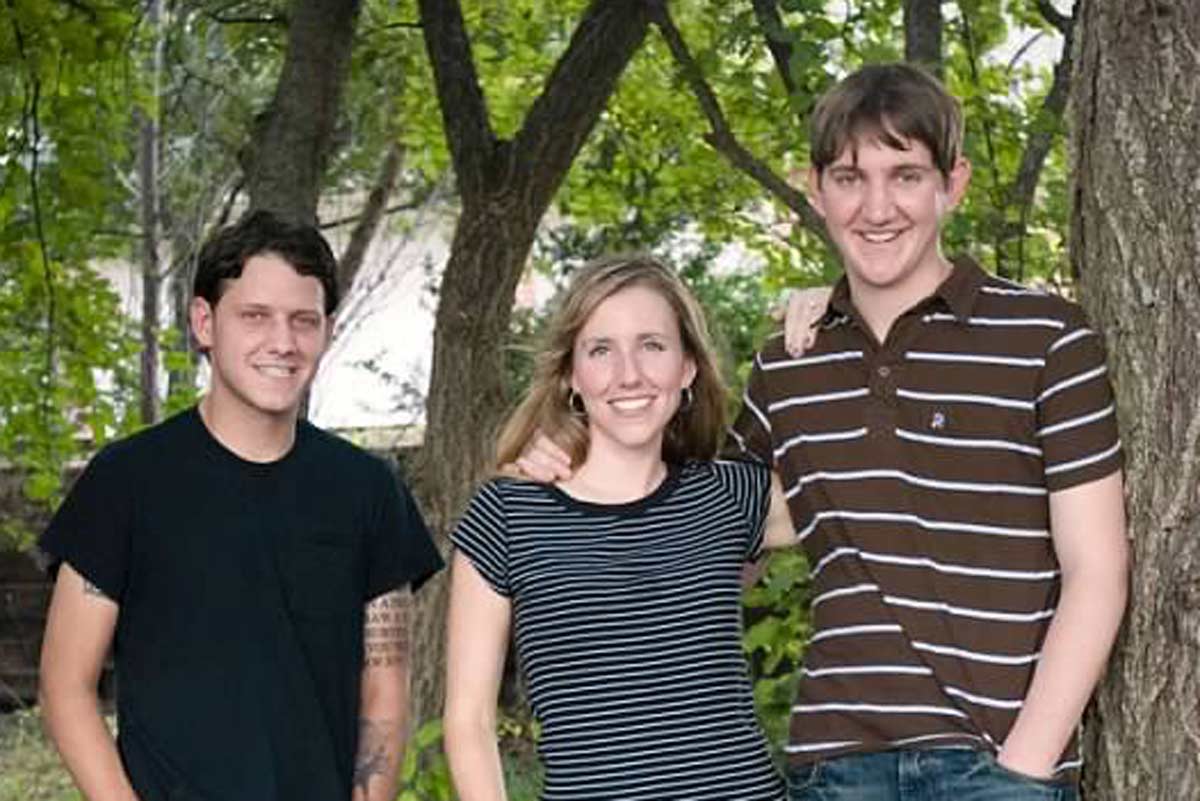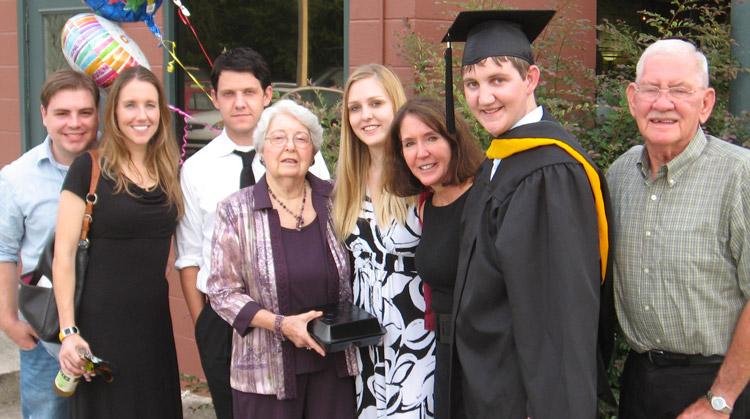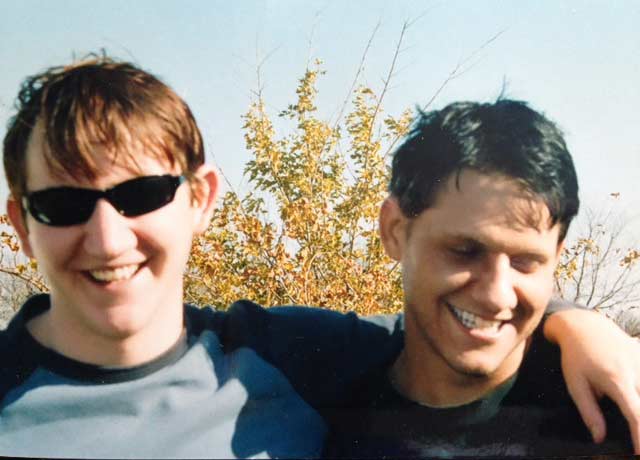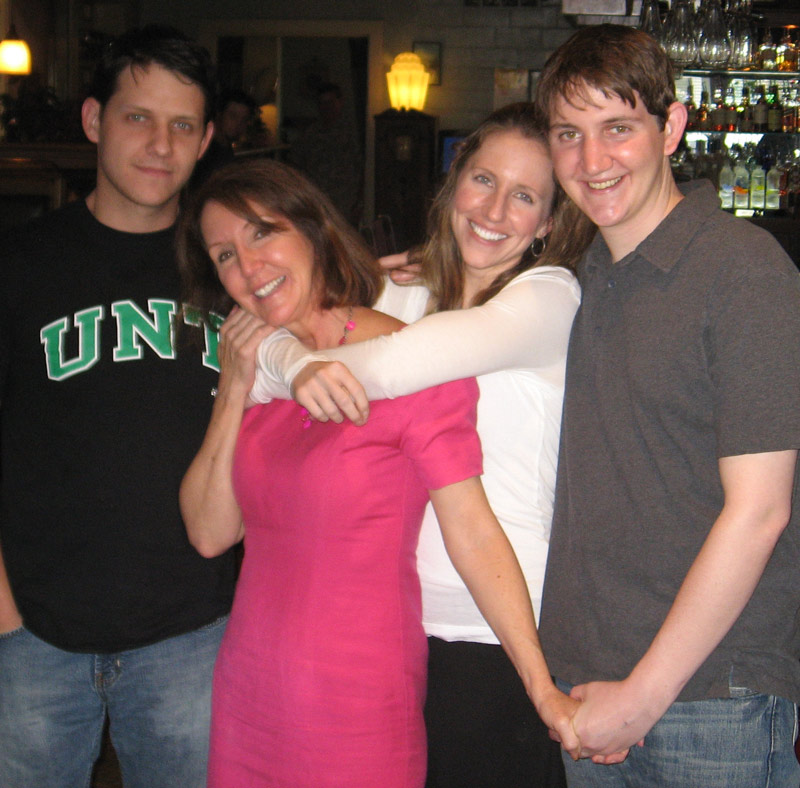Randy's Story by Sarah Roland
My youngest brother, Randy, was one of 63,632 people, who according to the CDC, died in 2016 of a drug overdose. Like everyone else, though, he is more than just a statistic.
Randy, my other brother, George, and I grew up in a stable and loving family. Our dad was a criminal defense lawyer, and we had a “stay at home” mom. Randy was funny and compassionate and excelled academically at school. He loved sports, especially baseball, and had a large circle of friends. Randy was happy, fearless and carefree.

Life was very good; then suddenly our dad died of heart failure. We were all teenagers; Randy was 14 years old. Randy never seemed to be able to find peace after that. The drugs started about a year later; first with marijuana, then came other and more dangerous substances.
For the overwhelming majority of the time, Randy was earnest and so yearned to be clean and sober – to be normal and have a normal life – to have that which we too often take for granted. He tried everything from counseling and behavior therapy to rehabilitation and stepwork, to prescription drugs designed to counter addiction. He never achieved real long term sobriety but rather just windows of sober time during his life. Those times were wonderful.
Randy attended Texas Tech, where he was on the Dean’s List, and after graduation attended UNT where he received his Master of Psychology.
He worked for MHMR and at UT Southwestern, where he was on a team doing addiction research. He became engaged to Lindsey, another graduate student. Randy had passed his state board test for professional counseling and had plans to become a drug and alcohol counselor.

He died of a heroin and fentanyl overdose April 18, 2016.
Randy had just turned 32 when he died. Randy was at a happy time in his life. Just days before his death he had been with our family and experienced the birth of his nephew, Samuel. That was especially significant because he had been in rehab when his niece was born, and he always felt as if he’d missed out. He had plans to come back home in the next week to be in our brother’s wedding. He was planning on moving back closer to our family. He loved us and knew without question that we loved him. He very much wanted a normal life. He was trying to make that happen. It just didn’t happen soon enough.
If addiction could be cured by enough love, Randy would have been cured as soon as he started using. Love isn’t the issue. If addiction could be cured by will power and determination, Randy would have defeated it hands down; he had more will power and grit than most anyone I have ever met. If addiction could be cured by experience, then Randy would have been cured; he experienced so much.
But it cannot be cured by those things because addiction is currently an incurable disease. There are only periods of remission. There is no magic pill or quick fix, and it is inexplicable why some make it, and some don’t. It doesn’t discriminate among us. It is not stereotypical and no one particular category of people is immune from its effects. It affects us all regardless of race, gender, education, or socioeconomic status. It isn’t a disease for only the criminals and less fortunate among us – it affects all walks of life. I have seen it firsthand. Addiction causes immeasurable havoc and pain on the addict and his family. The suffering caused by addiction to individuals and society as a whole is incalculable. It must be controlled and stopped.
The tragedy of overdose deaths is preventable. In Randy’s memory and to continue his hope of helping others, our family created R.O.O. Reacting to Opioid Overdose, a 501 c 3.
This nonprofit currently has two projects: hosting the North TX Overdose Awareness Day in August and distributing Narcan throughout the community.

If addiction could be cured by enough love, Randy would have been cured as soon as he started using. Love isn’t the issue. If addiction could be cured by will power and determination, Randy would have defeated it hands down; he had more will power and grit than most anyone I have ever met. If addiction could be cured by experience, then Randy would have been cured; he experienced so much.

But it cannot be cured by those things because addiction is currently an incurable disease.